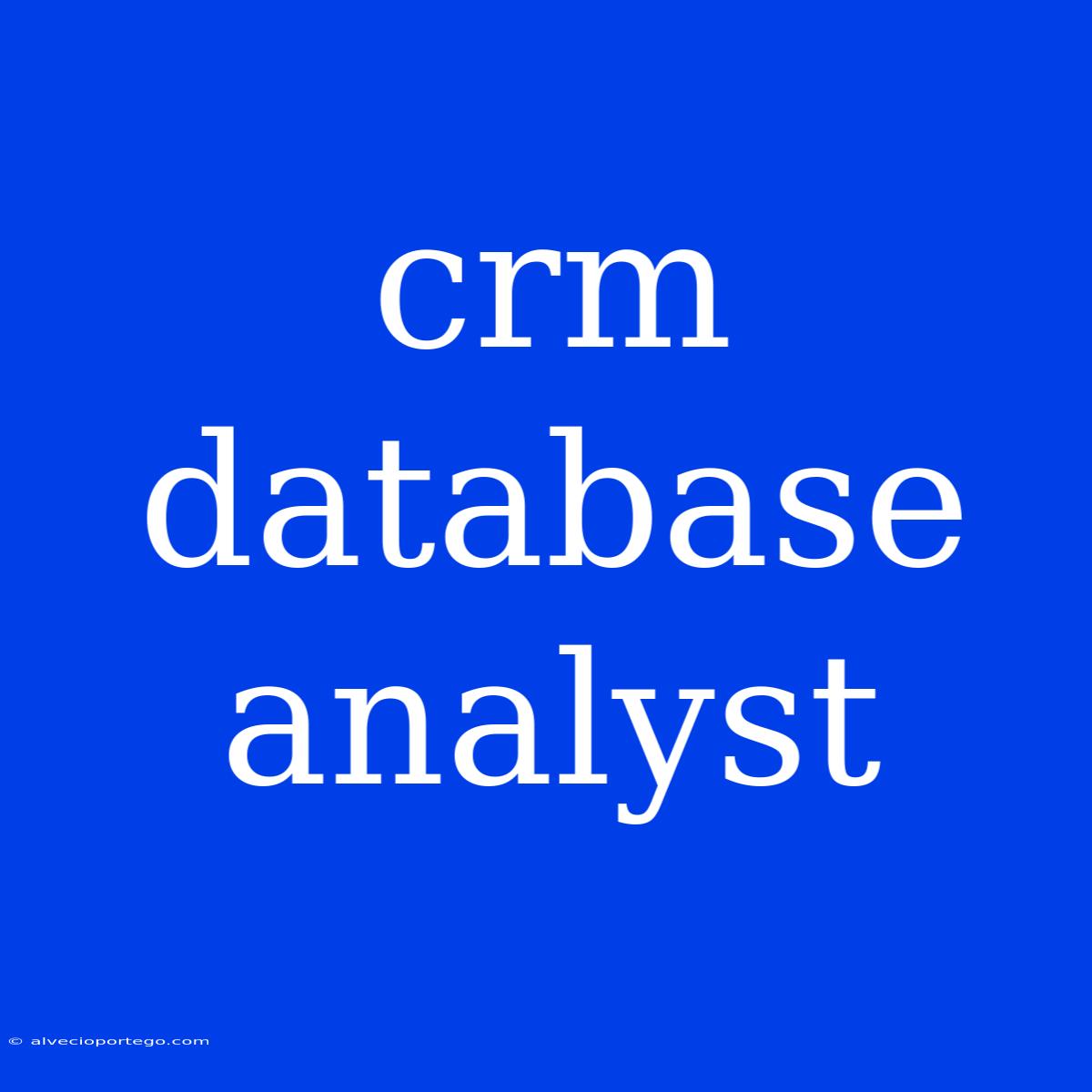The CRM Database Analyst: A Data-Driven Force in Customer Relationships
In today's data-driven world, understanding and leveraging customer information is crucial for businesses to thrive. That's where the CRM Database Analyst comes in, playing a vital role in ensuring the smooth operation and effectiveness of a company's Customer Relationship Management (CRM) system.
What Does a CRM Database Analyst Do?
A CRM Database Analyst is responsible for managing, analyzing, and optimizing the data within a CRM system. This involves a wide range of tasks, including:
- Data Collection and Integration: Ensuring accurate and complete customer information is gathered from various sources and integrated into the CRM database.
- Data Cleaning and Validation: Identifying and correcting errors, inconsistencies, and duplicates within the database to maintain data quality.
- Data Modeling and Structure: Designing and implementing the data schema, relationships, and structures within the CRM database to support business needs.
- Data Analysis and Reporting: Extracting meaningful insights from the CRM data, generating reports and visualizations, and providing actionable recommendations.
- Performance Tuning and Optimization: Identifying and resolving performance bottlenecks, optimizing queries, and ensuring efficient data processing within the CRM system.
- Security and Compliance: Implementing and maintaining appropriate security measures, ensuring data privacy and compliance with relevant regulations.
Why are CRM Database Analysts Important?
CRM Database Analysts are essential for businesses that rely on CRM systems to:
- Improve customer experience: By providing accurate and complete customer information, CRM Database Analysts help businesses deliver personalized and relevant interactions.
- Increase sales and revenue: Data-driven insights from the CRM database can identify sales opportunities, optimize marketing campaigns, and drive revenue growth.
- Enhance customer retention: Understanding customer behavior and preferences through CRM data can help businesses build stronger customer relationships and reduce churn rates.
- Boost operational efficiency: CRM Database Analysts ensure the smooth operation of the CRM system, enabling efficient data access and streamlined workflows.
Skills Needed for Success
A successful CRM Database Analyst needs a combination of technical and analytical skills, including:
- Strong database management skills: Proficiency in SQL, data warehousing, and database administration is essential.
- Data analysis and interpretation: Expertise in statistical analysis, data mining, and business intelligence techniques.
- CRM system knowledge: Familiarity with popular CRM platforms like Salesforce, Microsoft Dynamics, or Oracle Siebel.
- Communication and presentation skills: The ability to effectively communicate technical information and present insights to stakeholders.
- Problem-solving and critical thinking: Identifying and solving complex data-related challenges.
A Rewarding Career Path
The role of a CRM Database Analyst is in high demand across various industries, offering a rewarding career path with excellent growth potential. As businesses increasingly rely on data-driven strategies, skilled CRM Database Analysts will be instrumental in shaping the future of customer relationships.

